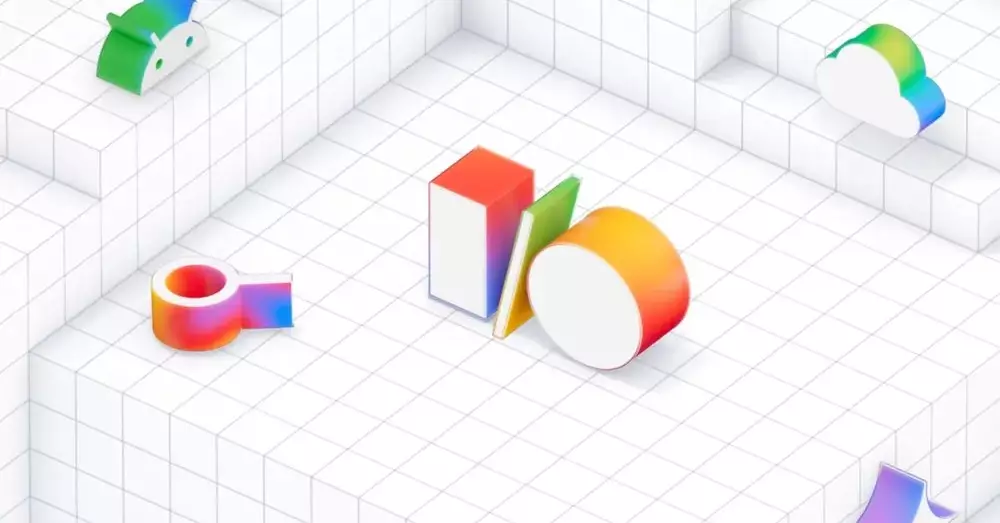As the countdown begins for Google’s annual I/O developer conference, industry enthusiasts and tech aficionados are brimming with anticipation. This year, however, the atmosphere is distinctively different from previous years. Unlike the expansive announcements that typically accompany new iterations of the Android operating system, this year’s keynote is set to create ripples primarily in the realms of artificial intelligence (AI) and extended reality (XR). With AI being a hot topic, Google aims to assert its dominance in this rapidly advancing field, particularly with its Gemini portfolio of AI-driven solutions.
Google’s strategic focus on AI comes at a critical juncture as it participates in an intensifying technological rivalry with prominent players such as OpenAI, Microsoft, and Meta. As various tech giants rush to outdo one another with groundbreaking AI capabilities, Google’s commitment to this domain is not just a matter of innovation; it’s vital for maintaining its position at the forefront of the industry.
How I/O 2023 Marks a New Era
This year’s developer keynote, scheduled for May 20th at 10 AM PT / 1 PM ET, is poised to be a testament to Google’s visionary approach. The excitement surrounding the event does not just hinge on the expected technological reveals; it extends to the broader implications of how AI is reshaping our interactions with technology. The focus on AI in this year’s presentations is not surprising, considering the annual event has highlighted AI-driven breakthroughs for two consecutive years.
Indeed, Google’s investment in innovative AI features and functionalities—such as enhancing user experiences across its device ecosystem—will likely be a key topic during the keynote. Such advancements include improved capabilities inherent in phones, smart devices, and applications, ensuring that Google remains a pivotal player in an AI-centric future.
Extended Reality: A Leap into New Dimensions
While AI dominates the agenda, Google is also not neglecting the significant domain of extended reality. Developers and experts have eagerly anticipated updates on Android XR, which has received minimal coverage in the lead-up to I/O. The recent hints dropped by Sameer Samat, head of Android, suggest tantalizing developments, particularly regarding Google’s prototype smart glasses. This represents a significant step as Google seeks to pioneer a comprehensive ecosystem that merges the physical and digital realms through augmented experiences.
Moreover, the competitive landscape, particularly with rivals like Samsung gearing up to release their private iterations of XR technology, positions Google at a critical junction. There is an urgent need for Google to leverage I/O to highlight its software capabilities before other players dominate the conversation. This year’s I/O might feel like a launchpad for the extended reality capabilities that will define how users will interact with both familiar and novel technological landscapes.
Significance Beyond Hardware Announcements
In recent years, Google frequently utilized I/O as a platform to unveil new devices, including Pixel phones and Nest products. However, this year’s intentions appear more concentrated. Experts speculate that if any product announcements were coming, they would have emerged alongside previous updates. Thus, it seems as though Google is strategically reallocating its focus to develop robust AI solutions and refine XR technologies rather than becoming sidetracked by hardware unveilings.
This shift doesn’t indicate a lack of innovation but rather an intentional pivot toward long-term growth strategies. Google is laying the groundwork for a future aligned more closely with advanced AI systems, which will define user experiences across all platforms.
A Broader Impact on the Tech Landscape
Ultimately, the emphasis on AI at I/O speaks volumes about the growing trend in the tech landscape, where artificial intelligence is increasingly interwoven into the fabric of everyday life. As individuals, businesses, and industries adapt to the evolving capabilities of this technology, Google has demonstrated its willingness to lead the charge. The upcoming I/O is not merely about showcasing new software or hardware; it embodies a profound transformation that could redefine how technology integrates with human experiences.
As the world watches, Goggle’s upcoming announcements could herald a new age in technology, one rich with possibilities fueled by artificial intelligence and enriched through extended reality. The excitement lies not only in the technologies themselves but in their potential to fundamentally reshape the way we live, work, and interact with information.

